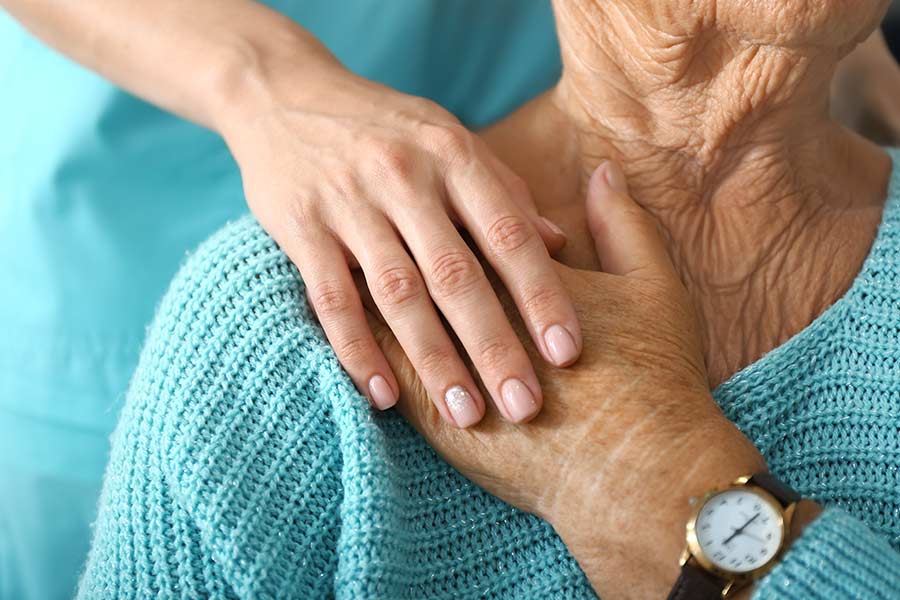It’s not news that an increasing portion of Americans are seniors, but to provide some perspective, since 2012, nearly 10,000 Americans turn 65 daily and by 2030, 20% of the population will be over 65 years old. In response to this trend, the healthcare industry continues to rely more and more heavily on two increasingly important avenues of post-acute care: home care and home health. Considering the complexity of the in-home care delivery ecosystem, it is vital that patients, caregivers, and providers understand the differences between each aspect of care to ensure all involved approach each conversation and decision from an informed standpoint. To help drive some clarity, here is a brief overview of home care (non-medical) and home health care (medical) and the advantages of both in meeting the needs of an aging population.
What is Home Care?
Home care refers to supportive, non-medical services rendered to seniors in their homes, enabling them to maintain a certain level of independence while making sure that their personal needs are met. Home care is very common as 30% of senior citizens that need long-term care rely on it to supplement family-provided support. It is typically paid for in one of three ways:
- Covered by Medicare when bundled with a home health nursing/therapy care (more on that below)
- Covered by public aid (Medicaid) as an alternative to Nursing Homes
- Out-of-pocket
Who Provides Home Care and What Do They Do?
Home care (also sometimes referred to as senior, personal, or private-duty care) is undertaken and provided for by caregivers or care aides who are usually non-medical persons that have been trained to capably take care of seniors. They are either contracted individually or through a home care agency. Their duties, in a broad sense, are to provide assistance to senior citizens, ensuring that the necessary activities of daily life (ADLs) are done. In particular it involves helping with:
Personal hygiene: Caregivers assist with bathing, oral hygiene, dressing, and grooming of seniors. Additionally, depending on the ability level of the senior, they also sometimes help with toileting.
Nutrition: Meal preparation is one of the core functions of a care aide. A large percentage of senior citizens need help cooking nutritious meals and it’s up to the caregiver to ensure that they consistently eat a well-balanced diet.
Medication reminders: Senior citizens use medication more than any other age group in the U.S. In fact, they constitute 34% of all prescription drug use and 30% non-prescription medication use. Without the daily and on-time reminders given to them by caregivers, seniors run the risk of unnecessary hospitalizations, malnutrition, and depression.
Mobility and Transportation: Caregivers help seniors move around– whether it’s getting in and out of bed, navigating staircases, going to pick up necessities at stores, or getting to appointments.
Housekeeping: Caregivers usually help out with light housekeeping like doing the laundry, washing dishes, cleaning up, getting groceries and stocking up the fridge. They also generally make sure the home is kept tidy to prevent slips and falls.
Companionship: With increasing loneliness and social isolation for seniors, home care can also involve providing companionship. Many caregivers, in the course of their duties, form lasting relationships with the seniors in their care.
What is Home Health?
Home care should not be confused with home health care which is entirely different in nature. How so? Home health care is typically the medical and clinical care of someone who has recently completed an inpatient stay at a hospital or other in-patient facility and is being discharged to go home and recover. In this case, the care is provided by registered nurses, physical therapists and other professional and licensed medical personnel. Examples of the type of services often covered by insurance include the following for homebound patients:
- Skilled Nursing: Services and care that can only be performed safely and effectively by a licensed nurse. Injections (and teaching patients to self-inject), tube feedings, catheter changes, observation and assessment of a patient’s condition, management and evaluation of a patient’s care plan, and wound care are examples of skilled nursing care that Medicare may cover.
- Skilled Therapy: Physical, speech and occupational therapy services that can only be performed safely by or under the supervision of a licensed therapist, and that are reasonable and necessary for treating your illness or injury. Physical therapy includes supervision of and training for exercises to regain movement and strength to a body area, as well as gait training. Speech-language pathology services include exercises to regain and strengthen speech and language skills. Occupational therapy helps you regain the ability to do usual daily activities by yourself, such as eating and putting on clothes.
- Medical Social Services: Services ordered by your doctor to help you with social and emotional concerns you have related to your illness. This might include counseling or help finding resources in your community.
- Medical Supplies: Includes certain medical supplies provided by the Medicare-certified home health agency, such as wound dressings and catheters needed for your care.
- Durable Medical Equipment: Includes certain pieces of medical equipment, such as a wheelchair or walker.
The Benefits of Care in the Home as an Alternative to Inpatient Care
When it comes to choosing the best option for seniors, care in the home has a number of advantages over facility care, including:
- In-home care allows seniors to remain with their family and loved ones while getting the assistance and support they need, helping to prevent feelings of isolation.
- Home care eliminates the strain of moving and adjusting to a new place and environment as would be the case if facility care were chosen.
- With home care, the support and assistance given is flexible and wholly customized to fit the needs of the senior.
- Often times, the cost of home care is less than that of assisted living facilities. Although this depends on the level of care and support that the particular individual requires.
- Most importantly, the overwhelming majority of seniors (90%) say they want to stay in their homes as they age.
Appreciating Home Care Providers and Home Health Care Aides
Home care and home health agencies are valuable in promoting better overall health of our growing elderly population. The services they render allow seniors to have a level of independence while ensuring that a good quality of life is achieved and maintained. Without home caregivers, millions of seniors would have to be separated from their families as they would have no choice but to move to assisted living facilities.
Dina partners with home care and home health providers by enabling them to capture critical patient data and easily transition patients between other in-home care partners. As such, Dina is rapidly becoming the trusted, HIPAA-compliant way to manage patient care in the home.
Keep Learning with Us
Want to learn more about Dina and how we are using technology to transform health in the the home? Subscribe to our newsletter to stay in touch!




